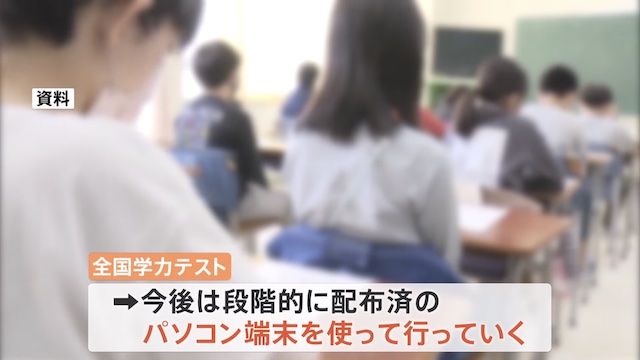TOKYO, Jul 09 (News On Japan) - Japan's Ministry of Education, Culture, Sports, Science and Technology has announced plans to transition the National Academic Test, conducted annually for all sixth-grade and third-year junior high school students, to an entirely online format from 2027. The traditional paper-based test will be replaced by computer-based testing.

The National Academic Test, which began in 2007, targets approximately 2 million elementary and junior high school students across Japan. Until now, the test has been conducted on paper. However, the ministry has decided to gradually shift to using distributed computer terminals, starting with the science test for junior high schools in the next academic year.
A policy draft presented at an expert meeting today indicates that online testing will be introduced for junior high school English in 2026, with a full rollout to all subjects from 2027 onwards. Due to considerations such as internet connectivity, the tests will not be conducted simultaneously nationwide but rather spread over several days.
The Ministry of Education cites several benefits of the online format, including reducing the burden on schools by eliminating the need for distributing and collecting test papers and enabling the use of various tools such as videos and audio in test questions.
The official decision on this policy is expected to be made this autumn.
Source: TBS















